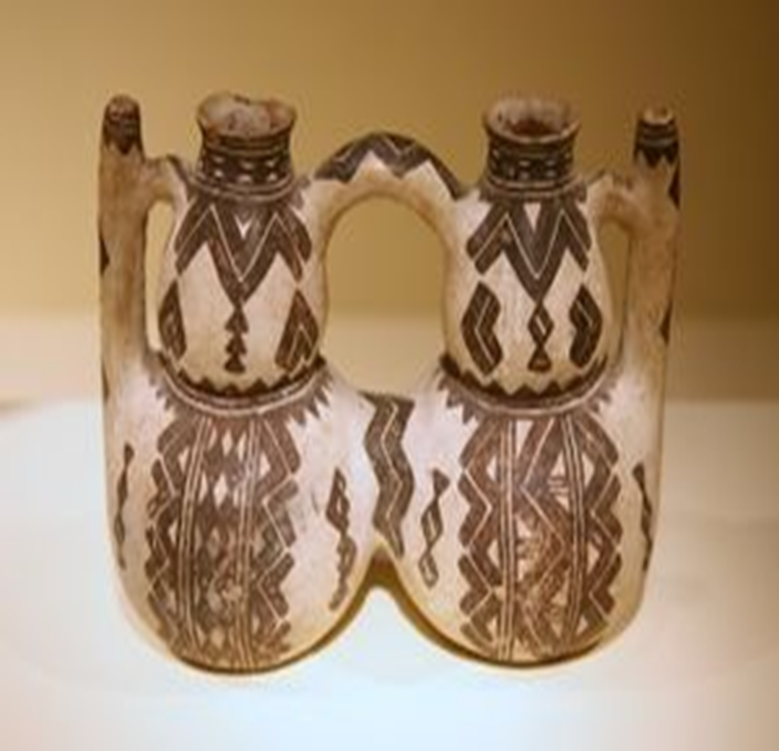Amazighs of Algeria and Amazigh Kabyle culture in Canada

Canada stands as a vibrant tapestry, woven from the diverse threads of immigrant communities, each contributing to the cultural mosaic of the nation. Among these threads, the Amazigh Kabyle community shines as a distinct and colorful thread. The Kabyle Amazighs come from the Kabylie region in Algeria in North Africa.

They blended their unique heritage into the fabric of Canadian society. Driven by dreams of a better future and better opportunities, a large number of Kabyle Amazighs moved to Canada to find a new home, and have enriched the nation with their rich culture and traditions.
Harmonizing diversity and the impact of the presence of the Kabyle Amazighs
The presence of the Amazigh Kabyle community in Canada has had an indelible impact on the country's cultural landscape. This existence is the result of a complex interaction of multiple factors, including economic opportunities, shifts in political and social environments, and a quest to improve the quality of life. This has led to the establishment of Amazigh Kabyle communities in various provinces in Canada. They brought with them treasure troves of traditions, language, and customs that add to the cultural vitality of the nation.

A multi-faceted cultural scene of art, music and cuisine
In addition to contributing to the cultural fabric of Canada, the Amazigh Kabyle community has also influenced the artistic scene, Kabyle songs and national cuisine. Found traditional music and Kabyle dance forms The Amazigh Kabyle heritage has a place in cultural events and festivals in Canada, where
Showcasing the community's creativity and artistic expression. Moreover, authentic Amazigh Kabyle cuisine has added a delightful flavor to the taste buds of Canadians, offering them a delicious journey into the world of North African flavors and spices.
On July 1, 2017, the Montreal Agenda witnessed an unforgettable event, bringing together the elite of Kabyle intellectuals residing in Canada. This event was an announcement of the birth of the TV channel TQ5, the new star

In the sky of Kabyle media. As a result of the hard work of a dedicated team, this project stands
In the arena of communication with a unique vision directed towards the Kabylie region: “For and by the Kabylie region, exclusively in the Kabylie language.” This profound and historical importance gives a special aura to this innovative initiative in the regional and international media scene.
Teaching the Algerian Kabyle language
Diving into history, we find the Amazighs a huge North African people whose vast country extends from the Egyptian Siwa to the Amazigh Canary Islands with a rich cultural fabric. Through the ages and civilizations, the Amazigh language, which derives its roots from the Afro-Asiatic language family, has continued to arouse the interest of linguists and amateurs alike.

The exposed heritage of the ancient Amazigh language
As we open the pages of history, North African Amazighs appear to us as an authentic people, characterized by a complex cultural and linguistic heritage. In particular, a basic question arises: What language did the Amazigh speak? This question reveals an amazing mosaic of diversity, as the Amazigh language contains a range of languages and dialects. Among them, notable names such as Tamazight, Tashelhit, Kabylie, and Rifi stand out, each of which carries unique regional details and flavours.
Details of Amazigh and Amazigh naming
The terms “Amazigh” and “Amazigh” often overlap, leaving the indigenous North African people with a nominative ambiguity. However, subtle differences lie beneath this linguistic overlap. "Amazigh",It is a self-designed term, deeply associated with the indigenous people, translating to “free people” or “gentlemen” in their language. In contrast, “Berber” carries historical weight, as outside observers such as the Greeks and Romans used it to describe North African societies.
A legacy that continues to celebrate the Amazigh identity

The story of the Amazigh people, often synonymous with “Amazighs,” crosses North Africa and echoes through the corridors of time. Although they have shared identities, these terms are distinguished by meaningful details. While they both refer to the same ethnic category, " Amazigh " carries historical connotations as a term used by foreign travelers and conquerors from ages past. “Amazigh,” on the other hand, takes in the essence of the self-strength and identity of a resilient people, echoing across the generations an affirmation of their heritage.
Source : websites

